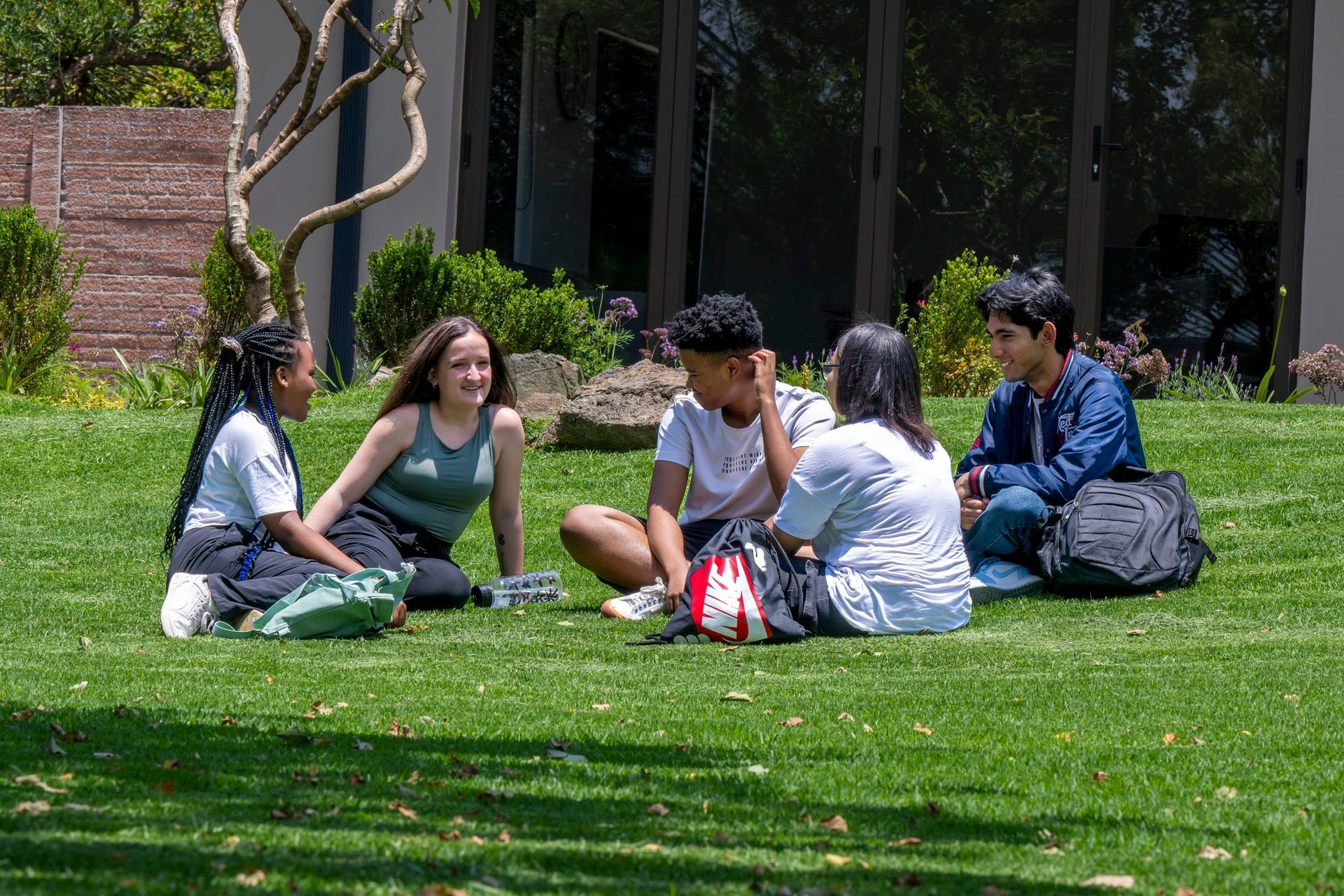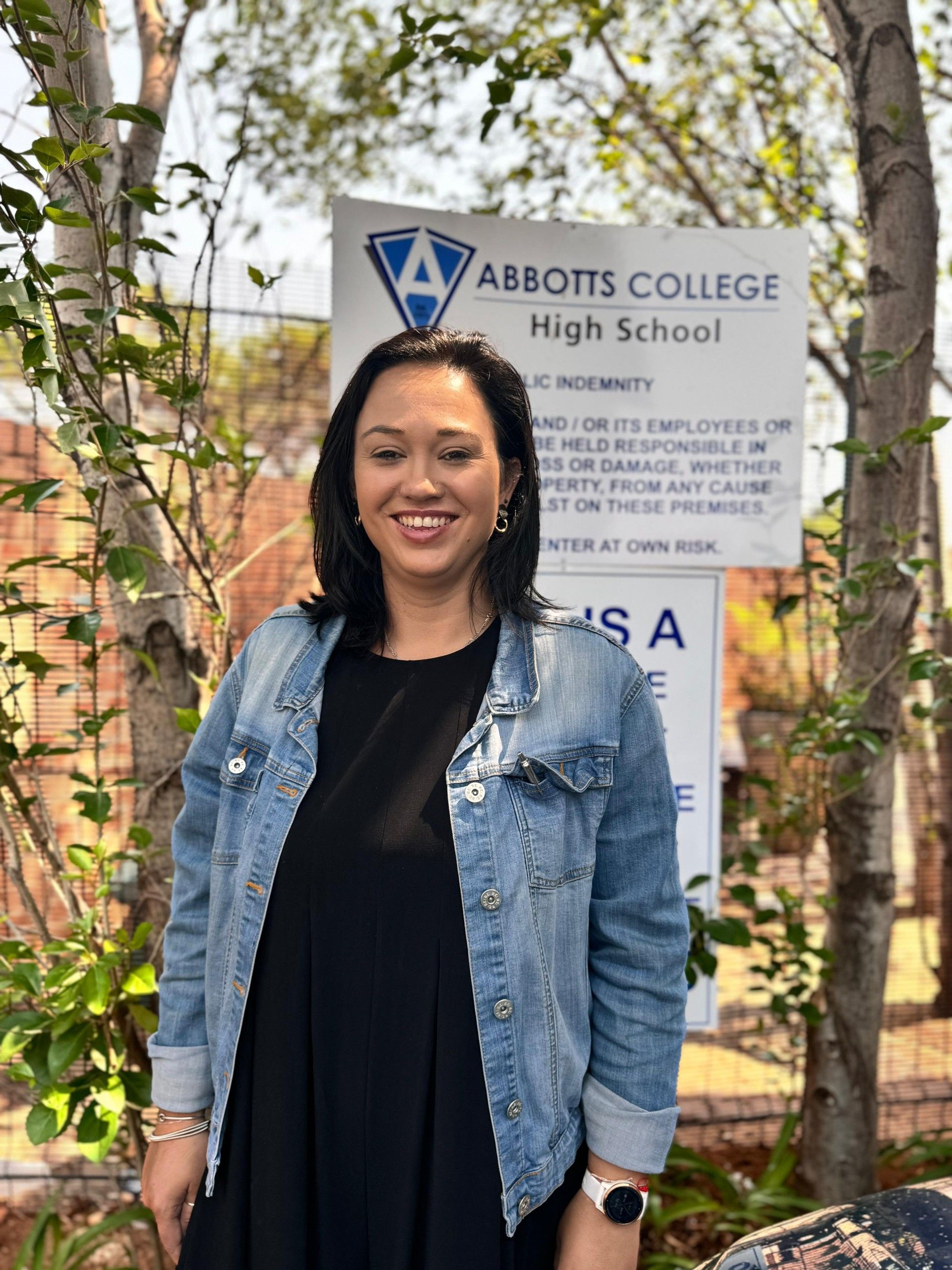My Teaching Philosophy
Nicholas James Schoonraad • December 2, 2020
As an individual who has pursued an academic career by obtaining a Masters in Medical Microbiology from the University of Pretoria, and has lectured to students in the fields of physiotherapy, medicine (2nd-year doctors) and to undergraduates in the medical sciences, I have learned to understand and appreciate the role that education plays in our society and around the world. When I transitioned from the tertiary setting to the secondary schooling setting, I knew that a few adaptations would need to occur on my behalf, but my passion and overall teaching philosophy has remained steadfast and constant.
Throughout the four years that I have been teaching in secondary schooling institutions, I have found that being an educator means more than just the stereotype of someone standing in front of a classroom of students and dictating information from the various resources that are provided by the schools or department of education. Although this does form part an educator's role, there is a lot more to teaching than this. One of the primary functions of an educator, according to my philosophy, is that he/she should play a role as a mediator of learning and should mediate between the students and the learning process. By doing this, the educator teaches the learners how to learn and build knowledge for themselves, instead of relying on the educator to do everything for them. In a way, as educators, we are responsible for the development of the learners' cognitive ability to obtain and process information that will help them in the real world. We are also accountable for teaching learners to take responsibility for their educational development and progress, especially when they take on further studies in their tertiary academic careers.
I have found that being an educator entails a holistic role as a caretaker, in that we are responsible for more than the educational needs of a student. As teachers, we are tasked with more than just teaching students about subject knowledge. "Teaching" is a broad term that can be applied to other facets of learners' lives, such as their moral, ethical and personal perspectives of the world around them. It is for this reason that I take on an inter-parental approach when I teach my students and deal with the many different problems. Be it educational or personal developmental needs that my learners may have. This plays a significant role in my teaching philosophy, and I feel that I cannot fulfil the role of a responsible educator without incorporating this into my everyday teaching practices.
Each teacher has their own unique and individual methods that they use to teach their students in their specific subject disciplines. I thus feel that no matter how well developed my teaching skills and knowledge become, I am always able to learn and add to my understanding, as part of being a teacher is fulfilling the role of a lifelong learner. The teaching methods that I use include the conventional dictation of the work at hand, but I always find it in the best interests of the learners if I add onto the knowledge that I pass on to them by explaining the content in ways that are practical in the world today and also add a bit of background to arouse interest, to keep the learner's attention. Instead of just repeating the content in the textbook, I always try to turn the lesson into an informative discussion that incorporates the learners by allowing them to add to the debate. This also gives me some insight into the prior knowledge gained by the learners from previous years or their degree of general knowledge. By making the lessons learner-centred, I find that the learners become more willing to want to participate during the classroom contact sessions and that the learners are generally more likely to understand the work that was discussed on that specific day.
By adding to the resource's content, I do realise that this could lead to the learners becoming overwhelmed with information. Therefore, I must highlight the main concepts that I need them to grasp. The extra information has helped the learners in the past to be able to give me some explanation when they are struggling with a specific section of work or a particular question that is posed to them during the testing or examination procedures that take place throughout the year. I also find it helpful in that it helps to develop their thinking patterns and ads to their knowledge, as it gives the learners a more detailed explanation of what is being dealt with, but once again, it is necessary to highlight the key concepts for the students. This method of teaching fulfils the focal areas of my teaching philosophy.
Another method I use that also reflects my teaching philosophy is ensuring that the students are enriched by the activities that they are expected to complete. Whether it is activities from the resources that I use or activities that I set up for them, I will always show them how the exercise will help them to relate to the topic that is discussed. I find this to be an essential part of my teaching method as it gives the students a sense of the necessity of the activity and leads to them not just feeling that I am giving them mundane work or tasks to complete. The learners are, therefore, able to see the value of doing the work and I also find that this, at times, helps gives the learners a sense of value from what they are doing in my classes.
I feel that the way I teach helps the students to "learn how to learn" instead of them just taking the information given to them and trying to remember it for recall when they are assessed/examined on the work. The methods I use, reflect my teaching philosophy as they encourage the learners to build on their knowledge and also teaches them to take responsibility for the work that they are dealing with. I am a keen believer that students should not just be encouraged to learn/remember their work, but that they should rather understand the content instead of remembering it. Not all students are able to take up large volumes of information and remember everything. This is why I strive to make sure that the students understand what they are being taught and why they are being taught the specific content that they are faced with in the curriculum for Life Sciences.
Finally, my teaching philosophy dictates that I also stand back at times and take on the role as a mediator of learning as it is imperative that the learners get a feel for the work and the tasks that they have to partake in. It would be futile to just give the learners notes and the pages of the textbook that they are using and tell them to learn/remember that, whilst I simply provide them with an explanation of the work. Leaners have to learn how to approach and handle the work on their own terms as students are all unique individual with their own mechanisms that they use to cope with the content and volume of the topics they need to know. I do, however, need to be there for the students if they need guidance or direction with the work they are tasked with doing.
All teachers have their own ideas and teaching philosophies, but I like to base mine on what I find to be effective and what I see makes the students more cooperative and willing to learn. The duty of an educator is not one to be taken lightly as teaching students plays a crucial role in their development and their mindset, especially towards pursuing a career in an academic field or one day deciding to take their education further. I would be utterly displeased if I were the reason for a student not wanting to pursue a career in the sciences because of the philosophy I had as their educator. By building a relationship with the learners and by being open with them about my teaching philosophy, I feel that I can make a positive impact on their schooling career.
To learn more tips from our teachers and educational experts, click here: https://www.abbotts.co.za/blog
To learn more about Abbotts College, click here: https://www.abbotts.co.za/About-Abbotts
To learn about the Abbotts College experience, click here: https://www.abbotts.co.za/alternative
Feel free to call or email
one of our campus administrators.

As the preliminary and final examinations approach, both students and parents or guardians often experience heightened anxiety and stress. This guide provides practical strategies to help parents and guardians support their children through this critical phase of their academic journey. 1. Foster Effective Organization Create an environment conducive to studying by providing a quiet, well-lit study space equipped with essential stationery. Collaborate with your child to develop a structured study timetable to set clear expectations and promote disciplined preparation. Encourage the use of resources such as past question papers, which serve as valuable tools for revision and practice. 2. Maintain Daily Check-Ins Schedule regular, intentional conversations, such as during dinner, to discuss your child’s progress. Inquire about their experience with the day’s examination paper, adherence to their study schedule, and their feelings about upcoming tests. These check-ins foster open communication and allow you to gauge their emotional and academic state. 3. Minimize Distractions Help your child stay focused by keeping electronic devices like phones, tablets, and gaming consoles out of reach during study sessions. Set boundaries on screen time and social media access to prevent procrastination. While challenging, limiting Wi-Fi access during study hours can significantly enhance productivity. 4. Support Emotional Awareness Encourage your child to identify and articulate their emotions, such as anxiety, stress, or fatigue . Recognizing these feelings is the first step toward addressing them effectively. Discuss coping strategies to help them navigate emotional challenges during this period. 5. Teach Self-Regulation Techniques Guide your child in practicing self-regulation to manage stress. Techniques include: Breathing Exercises : Inhale deeply for four seconds, hold for four seconds, exhale for four seconds, and repeat. Sensory Focus : Identify five things they can see or hear to ground themselves in the moment. Tactile Stimulation : Hold a cold object to shift focus and reduce anxiety. These methods can help your child regain calm and focus during stressful moments. 6. Promote a Balanced Routine Prolonged study sessions late into the night can lead to burnout. Monitor your child’s study habits and encourage breaks to maintain balance. Plan activities such as outings with friends, a family meal, or short recreational periods with access to devices. Engaging in non-academic activities, like helping prepare dinner, can provide a refreshing change of focus. 7. Prioritize Self-Care Support your child’s well-being by ensuring they: Eat nutritious, regular meals. Get at least eight hours of sleep by limiting screen time before bed. Engage in physical activities such as walking, jogging, yoga, dancing, or gym workouts. These practices help alleviate stress and anxiety, which are common during examination periods. 8. Practice Empathy and Patience The examination period can be emotionally taxing for both students and parents. Approach your child with empathy, actively listening and offering guidance without criticism. This fosters a supportive environment, bolstering their mental health and sense of inclusion. By implementing these strategies, parents and guardians can play a pivotal role in helping their children navigate the challenges of examinations with confidence and resilience. Good luck to all the Grade 12 students with the upcoming examinations - you most certainly can do it!

Key Takeaways Personalised learning helps teens thrive by focusing on their unique strengths, interests, and goals. This approach encourages students to take ownership of their studies, building confidence and responsibility. Teachers play a vital role by adapting lessons and feedback to suit individual learning styles. Alternative education models often integrate personalised learning to support students who need flexibility. Whether you’re exploring private high schools in Pretoria , Centurion high schools , high schools in Northcliff , Johannesburg, or high schools in Cape Town with no uniform , personalised learning can help students reach their full potential in any environment. Every young person has a unique story, but in the wrong school, that story might never be realised and celebrated. The right school, however, ensures that each story is heard and every student lives up to their full potential. Enter personalised learning: Environments where young people are seen, supported and encouraged to explore who they are and want to be in the world. When parents and students walk into a school which prides itself on being student-centered, they immediately feel this difference. In my 30 years in education, I’ve been continually inspired by what young people can achieve when given the right tools, space, and support. Success is about so much more than academic results, it also includes emotional and social growth. When students are free to express themselves, they experience deeper learning, and greater personal well-being and self-confidence. This freedom builds communication skills, sparks creativity, and fosters critical thinking, developing them into confident and capable young adults. TAILORING EDUCATION TO INDIVIDUAL NEEDS When schools shift to personalised learning, something transformative happens: Students stop feeling like just another face in the crowd and instead, they become active participants in their education. With tools like MAP assessments, teachers gain valuable insights into where a student excels and where they need support. This data informs learning plans tailored to each student’s pace and style. Some students benefit from short videos or visual aids, while others prefer hands-on tasks or one-on-one support. Platforms like Khan Academy and adaptive learning apps help teachers meet these diverse needs with precision. This model creates a more dynamic learning environment, where a struggling student can revisit a topic until it makes sense. Advanced learners are able to move on to more challenging material without waiting. Each student progresses at their own pace, in a way that works for them. BEYOND ACADEMICS The benefits of personalised learning go well beyond the classroom. Students build emotional resilience when their needs are recognised and met. Social development naturally follows as they take ownership of their learning and grow in confidence. Personalised learning doesn’t demand perfection, but invites growth. Schools become places of discovery, where students study not only the curriculum, but also discover who they are and what they’re capable of. If you are wondering whether high schools can change lives by embracing individuality, just watch a student light up when talking about a subject they love. Look at the learners who feel safe enough to speak up, take risks, and aim higher. UNLOCKING TRUE POTENTIAL When schools see students not as numbers, but as individuals with dreams and potential, education becomes truly impactful. Personalised learning is not a trend, it is a return to what learning should be: human, responsive, and empowering. As educators, parents, and communities, we must create environments where every student feels valued and every voice matters. Because when we embrace students for who they really are, we unlock the door to who they’re meant to become. FAQs How does alternative education in South Africa support personalised learning? Alternative education South Africa supports personalised learning by offering flexible teaching styles that focus on each student’s needs and learning preferences Do any high schools in Cape Town allow students to wear their own clothes? Yes, high schools in Cape Town with no uniform , like Abbotts College Rondebosch, allow students to dress casually, promoting individuality alongside academic success. How does personalised learning work in Centurion schools? Centurion schools like Abbotts College use personalised learning by adapting lessons to suit each student’s strengths and goals, helping them build confidence and achieve better results. How do I decide which high school in Centurion area is best? To choose the best high school in Centurion area , consider the school’s teaching style, support systems, and how well it aligns with your teen’s academic goals and personal growth. Why might parents choose private high schools in Johannesburg for their teens? A5. Private high schools in Johannesburg provide personalised learning, strong academic programmes, and individual support to prepare teens for university and life beyond school.

In the wake of the mid-year exams, there is much that parents and students can learn from their results, which should be used to consider the way forward, an education expert says. “I was fortunate to have one child who was very diligent as a scholar, starting to study way ahead of the exams, even from the lower grades, using her midterm break to study year after year. She never had to be asked to go and study and her study breaks were actual breaks from studying,” says Mignonne Gerli, Principal: Abbotts College Pretoria East. “This was not true for all my children. Another of my children thought that studying the day before the exam would do just fine. I remember always catching this child on a study break or as she had just finished studying. I can confidently say that I never, in five years, caught her studying. You can imagine the fights and stress (felt by me) during this time.” As parents, we know how important it is to achieve good results at school. Prior to Grade 11 and 12, students already need to have developed a mature and diligent work ethic. “We know which doors can be opened and which firmly shut, based on your school results,” says Gerli. “For this reason, we fight the good fight which means that exam periods can be extremely stressful and highly unpleasant in many households. We try various methods to cajole our less than diligent children to put effort into their studies and in some cases loathe the day that the reports are published.” Whether exam time is a breeze for you as a parent, with your model child, or absolute hell, with your sweet/funny/kind but less committed child, the end of the exams and results need to be reflected upon. And for those who suffered through the past exams, it is time to come up with different strategies for the next set of exams. “Reflection for those who appear to prepare well for exams, will take the form of considering whether their study methods were effective or if they need help with the way in which they study.” “During these exams, I watched my one granddaughter study. “Not once did I catch her on a break on the days she was with us. What I also noticed was that she studies by copying out the textbook, not something that can be remedied when she is shoulder deep into the exams. This is not an effective way to study and she will definitely need to be taught better study methods in preparation for her next exams.” What have you as a parent noticed about your child’s study methods? Can you assist or will you need a professional to help with better study methods? “Students who achieved excellent results for their exams can reflect on why they did so well and how they can build on this going forward. “The students who put little to no effort into their preparation for the exams, will need guidance and assistance from their parents to try remedy their approach to their work. There needs to be an open, calm discussion about why they did not study for the exams and what would motivate them to study and put effort into their preparation for their next exam session.” Approaches could include: Negative consequences for poor effort, such as having their phones taken away for a period of time, grounding them or taking away certain privileges. Offering a reward for effort, this may be in the form of a cash incentive for improved results or achieving a certain mark per subject, it could be purchasing them something they would like, it could be additional privileges. Reasoning with them, explaining the importance of developing a mature work ethic and achieving good results. This is something teenagers struggle to fully comprehend so some true-life examples of success and failure of family members and friends, when it comes to financial and career success, may be useful here. Go through university courses they may be interested in with them and show them what is required to qualify for the courses. I have found that many teenagers have no idea what is required to gain access to a career they wish to pursue. A reality check is sometimes all they need. Help them think about their future and what they want to achieve in life. It needs to be concrete as having a goal is a great motivator for hard work. Usually, it is the students who have no real vision for their future and what they would like to achieve who struggle to motivate themselves to study. They simply don’t get why it’s important and of value. “Exam time can be very stressful, but taking some time to consider how to make the next exam session less so, and working towards establishing a positive trajectory, can make all the difference for the future,” says Gerli.








